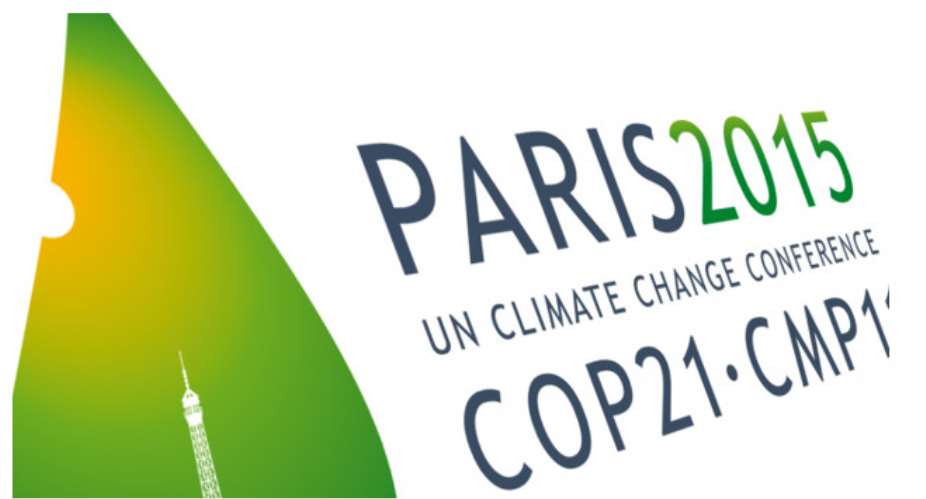Africa has one thing in common with the rest of the world, the certainty that rising temperatures will exacerbate existing problems and vulnerabilities. The global focus is on getting agreement to halt the rise in the world’s temperature. The outcome of the Paris Climate Summit later this year will be particularly important for Africa because of the changes that may accompany climate change.
An increased number of droughts is possible and flooding is also very real Particularly in Ghana where flood is a perennial issue and other African Countries and would experience more frequent and severe storms. With climate change and climate variability occurring, the poorest communities are set to suffer the most.
Study has shown that the continent’s environment and economy will be disproportionately affected by climate change, despite its limited responsibility for pollution. It is estimated that Africa’s annual GDP loss as a result of a global rise in temperatures will range from 1.5% to 3% by 2030. Out of the close to two million petitions presented to the UNFCCC on the 28th of November by the PanAfrican Climate Justice Alliance (PACJA), ACT Alliance and other partners, majority of those petitions came from the African continent and from people, who, on a daily basis are paying the price of climate change even though they did nothing to contribute to the situation.
“The cries from the climate impacted people of Africa especially women, children and smallholder farmers are on the rise. The cries also indicate that they are losing their farmlands and animals to floods and drought which most of the time is all their life savings, therefore the issue of loss and damage should be well addressed in agreement and given the importance it deserves” Mithika Mwenda, PACJA Secretary General reported.
Africa’s negotiators, activists and politicians hope that COP21 in Paris could be the site of a serious and wide-ranging global agreement. But as the world’s chief climate negotiators assemble here for the 21st United Nations Conference of the Parties (COP21), the future of billions may be shaped by a breakthrough agreement between developed and developing nations that could stem a catastrophic rise in global temperatures.
At stake is the future security and economic prosperity of much of the world, particularly Africa. According to Florence Kasule, PACJA of Uganda, as Paris climate talks moves very slowly, the impacts of climate change in Africa is increasing at a faster rate and not waiting for Paris talk. The urgency of making progress in Paris is now.
Africa’s concerns and its agenda on environmental change in general and global warming in particular are totally ignored by developed nations, which are the main factors affecting the global environment. Indeed, Africa has tried to present its case and pleas to the international communities and governments, as well as non-governmental institutions, on the dire present and future consequences of climate change on Africa.
The secretariat of the UNFCCC estimates that US$220 million per year will be required by African countries to adapt to climate change by the year 2030. According to article 4 of the UNFCCC, developed countries are under a legal obligation to provide financial resources to African countries to adapt to climate change.
The African groups in COP21 are progressively demanding that developed countries meet the cost of adaptation to climate change in Africa since adaptation measures cannot be promoted without providing financial support. It has been argued that developed countries whose greenhouse gas emissions are largely responsible for climate change, should provide financial resources to Africa to adapt to climate change.
Therefore Africa should be compensated for the damages caused to its development prospects by global warming. This in line with the ‘polluter pays’ principle, since it is owed not as aid from developed countries to Africa, but as compensatory finance from high emission countries to those most vulnerable to the impacts of climate change.
Such compensation should not only be adequate, predicable and accessible but also must come from clearly identifiable sources and should be administered by an entity in which Africa pays a role consistent with its numbers.
Fariya Abubakari is the climate tracker for adopt a negotiator Program





 Dumsor: Don't rush to demand timetable; the problem may be temporary — Atik Moha...
Dumsor: Don't rush to demand timetable; the problem may be temporary — Atik Moha...
 Space X Starlink’s satellite broadband approved in Ghana — NCA
Space X Starlink’s satellite broadband approved in Ghana — NCA
 2024 election will be decided on the grounds of the economy; choice of running m...
2024 election will be decided on the grounds of the economy; choice of running m...
 Dumsor: We're demanding less; just give us a timetable — Kwesi Pratt to ECG
Dumsor: We're demanding less; just give us a timetable — Kwesi Pratt to ECG
 Do I have to apologise for doing my security work, I won’t – Simon Osei-Mensah r...
Do I have to apologise for doing my security work, I won’t – Simon Osei-Mensah r...
 All my businesses have collapsed under Akufo-Addo — NDC Central regional chair
All my businesses have collapsed under Akufo-Addo — NDC Central regional chair
 Military, Prison Officers clash in Bawku, three injured
Military, Prison Officers clash in Bawku, three injured
 GRA-SML contract: MFWA files RTI request demanding KPMG report
GRA-SML contract: MFWA files RTI request demanding KPMG report
 Court threatens to call second accused to testify if NDC's Ofosu Ampofo fails to...
Court threatens to call second accused to testify if NDC's Ofosu Ampofo fails to...
 Family accuses hospital of medical negligence, extortion in death of 17-year-old...
Family accuses hospital of medical negligence, extortion in death of 17-year-old...
